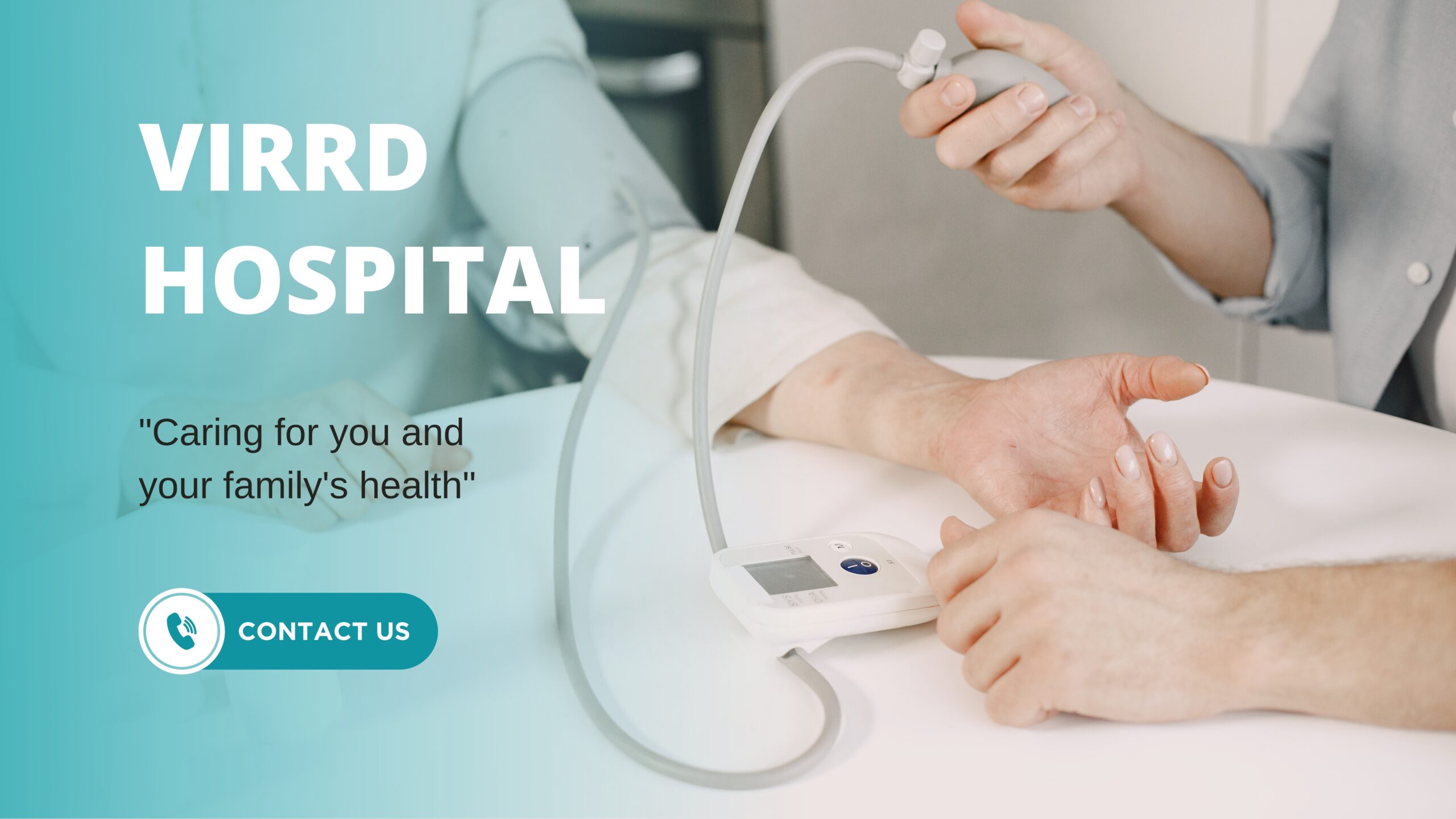Specialties @VIRRD
Anesthesiology: Caring for Pain Management
- Introduction to Anesthesiology
- Procedures
- Treatments and Surgery's
At VIRRD Hospital, our Anesthesiology department is dedicated to providing safe and effective anesthesia care for patients undergoing surgical procedures. Our team of skilled and experienced anesthesiologists works closely with surgeons and other healthcare professionals to ensure optimal patient outcomes and comfort during surgeries and other medical procedures.
Expert Anesthesiologists: Our Anesthesiology department is staffed by highly trained and qualified anesthesiologists who specialize in administering anesthesia and managing patients’ pain and vital functions before, during, and after surgery. They possess extensive knowledge of various anesthesia techniques and are committed to ensuring patient safety and comfort throughout the surgical process.
Comprehensive Anesthesia Services: We offer a comprehensive range of anesthesia services to meet the unique needs of each patient and procedure. Our anesthesiologists carefully evaluate each patient’s medical history, physical condition, and surgical requirements to determine the most appropriate anesthesia plan. This includes general anesthesia, regional anesthesia, and monitored anesthesia care.
State-of-the-Art Facilities: VIRRD Hospital is equipped with state-of-the-art operating rooms and advanced anesthesia monitoring equipment to ensure precise administration and monitoring of anesthesia during surgeries. We maintain high standards of safety and adhere to strict protocols to minimize risks and complications associated with anesthesia administration.
Personalized Care and Patient Safety: We prioritize personalized care and patient safety in our Anesthesiology department. Our anesthesiologists conduct thorough pre-operative assessments to identify any potential risks or complications. They closely monitor patients’ vital signs, oxygen levels, and pain management throughout the surgical procedure to ensure a smooth and safe anesthesia experience.
Collaborative Approach: Our Anesthesiology department works collaboratively with surgeons, nurses, and other healthcare professionals to provide comprehensive care for patients. We believe in effective communication and coordination to ensure seamless teamwork and optimal patient outcomes.
Patient Education and Support: We understand that undergoing anesthesia can be a source of anxiety for many patients. Therefore, our anesthesiologists take the time to educate patients about the anesthesia process, potential side effects, and post-operative care instructions. We strive to address any concerns or questions patients may have, promoting a comfortable and informed surgical experience.
By choosing VIRRD Hospital’s Anesthesiology department, you can trust that you will receive exceptional anesthesia care from a dedicated team of experts. We are committed to ensuring your safety, comfort, and well-being throughout your surgical journey.
In the field of anesthesiology, various procedures are performed to ensure patient comfort and safety during surgical interventions. The specific procedures offered at VIRRD Hospital’s Anesthesiology department may include:
- General Anesthesia: This procedure involves administering medications to induce a state of unconsciousness and pain relief throughout the entire body. It allows for a pain-free surgical experience and ensures that patients remain unconscious and immobile during the procedure.
- Regional Anesthesia: This procedure involves numbing a specific region of the body, such as an arm, leg, or a particular area of the abdomen, using local anesthetics. It blocks nerve signals, providing pain relief and allowing for surgery or other medical procedures without the need for general anesthesia.
- Spinal Anesthesia: This procedure involves injecting an anesthetic medication into the spinal canal, numbing the lower half of the body for procedures such as lower abdominal, pelvic, or lower extremity surgeries.
- Epidural Anesthesia: This procedure involves injecting an anesthetic medication into the epidural space surrounding the spinal cord. It provides pain relief for procedures such as childbirth or surgeries involving the lower abdomen, pelvis, or lower extremities.
- Monitored Anesthesia Care (MAC): This procedure involves providing sedation and pain management for patients undergoing minor procedures or diagnostic tests. It ensures patient comfort and relaxation while allowing them to remain conscious and responsive.
- Sedation for Procedures: This procedure involves administering medications to induce a state of relaxation, reduce anxiety, and provide pain relief during minor procedures or tests. It is often used in dental procedures, endoscopies, or other outpatient interventions.
- Anesthesia for Pediatric Patients: Our Anesthesiology department specializes in providing safe and age-appropriate anesthesia for children undergoing surgeries or procedures. Pediatric patients require unique care considerations, and our team is experienced in delivering optimal anesthesia services to ensure their well-being.
It’s important to note that the specific anesthesia procedure recommended for an individual patient depends on various factors, including the type of surgery or procedure, the patient’s medical history, and their overall health condition. The anesthesiologist will evaluate each case individually and determine the most suitable anesthesia approach to ensure patient comfort and safety.
The field of anesthesiology plays a crucial role in providing safe and effective pain management during surgical procedures. At VIRRD Hospital’s Anesthesiology department, we offer a wide range of treatments and surgeries, including:
- General Surgery: Our anesthesiologists provide anesthesia services for various general surgical procedures, such as appendectomy, hernia repair, gallbladder surgery, and bowel resection.
- Orthopedic Surgery: We specialize in providing anesthesia for orthopedic surgeries, including joint replacements, fracture repairs, spine surgeries, and arthroscopic procedures.
- Cardiothoracic Surgery: Our team is experienced in managing anesthesia for cardiothoracic surgeries, such as bypass surgery, valve repair or replacement, and thoracic tumor resection.
- Neurosurgery: We provide anesthesia services for neurosurgical procedures, including brain tumor removal, spinal surgeries, and cranial nerve decompression.
- Gynecological and Obstetric Surgeries: Our anesthesiologists are skilled in providing anesthesia for gynecological procedures, such as hysterectomy, ovarian cystectomy, and tubal ligation. We also offer anesthesia for cesarean sections and other obstetric surgeries.
- Urological Surgeries: We administer anesthesia for urological procedures, including kidney stone removal, prostate surgeries, bladder surgeries, and urinary tract reconstructions.
- ENT Surgeries: Our team provides anesthesia for ear, nose, and throat surgeries, including tonsillectomy, adenoidectomy, septoplasty, and sinus surgery.
- Plastic and Reconstructive Surgeries: We offer anesthesia services for plastic and reconstructive procedures, such as breast augmentation, liposuction, facelifts, and scar revision surgeries.
- Ophthalmic Surgeries: We administer anesthesia for eye surgeries, including cataract removal, glaucoma procedures, and retinal surgeries.
- Pediatric Surgeries: Our anesthesiologists are skilled in providing anesthesia for a wide range of pediatric surgical procedures, ensuring the comfort and safety of our young patients.

Anesthesiology FAQs
Unveiling the Answers: Frequently Asked Questions
Anesthesia is generally safe, but like any medical procedure, it carries certain risks. Common side effects include nausea, sore throat, confusion, and drowsiness. Serious complications are rare but can occur. Your anesthesiologist will discuss the potential risks and address any concerns prior to your surgery.
Anesthesiologists play a crucial role in managing post-operative pain. They will prescribe appropriate pain medications and techniques to keep you comfortable during the recovery period. This may include oral pain medications, intravenous pain relief, or other specialized pain management techniques.
It is essential to provide your anesthesiologist with complete and accurate information about your medical history, including any allergies, previous surgeries, medications you are taking, and any existing health conditions. This information will help them develop a safe and effective anesthesia plan tailored to your specific needs.
The duration of anesthesia effects will vary depending on the type of anesthesia administered and the individual patient. General anesthesia typically wears off within a few hours after surgery, while the effects of regional or local anesthesia may last for several hours. Your anesthesiologist will closely monitor you to ensure a smooth recovery.
In most cases, you will be instructed to avoid eating or drinking for a specific period before surgery. This is to reduce the risk of complications during anesthesia. Your healthcare team will provide you with clear instructions regarding fasting guidelines prior to your procedure.
Yes, during surgery, your vital signs, such as heart rate, blood pressure, oxygen levels, and breathing, will be continuously monitored by the anesthesiology team. This ensures your safety and allows them to make any necessary adjustments to your anesthesia throughout the procedure.
Our Doctors
Expert care from the best doctors in the field.
We are proud to have a team of highly skilled and compassionate healthcare professionals. Our doctors are experts in their respective fields and are dedicated to providing personalized care to each and every patient.
- Experienced and highly trained.
- Compassionate and patient-focused.
- Committed to providing exceptional care.
- Dedicated to improving patient outcomes.







Doctor's talk
Discovering the World of Medicine through Doctors' Eyes
Understanding the Importance of Exercise for Orthopaedic Health
Introduction: As an orthopaedic doctor at VIRRD Hospital, I have witnessed the impact of exercise on musculoskeletal health firsthand. Many
Ensuring Comfort and Safety During Surgical Procedures
Introduction: As an anesthesiologist at VIRRD Hospital, I have the privilege of playing a crucial role in ensuring patient comfort
Restoring Mobility and Enhancing Quality of Life : Orthopedic
Introduction:As an orthopedic specialist at VIRRD Hospital, I have witnessed the transformative impact of orthopedic care on patients' lives. In
Restoring Health and Promoting Well-being : General Surgery
Introduction:As a general surgeon at VIRRD Hospital, I have dedicated my career to providing compassionate and comprehensive surgical care to
Empowering Lives Through Advanced Care and Innovative Solutions
Introduction:As a urologist at VIRRD Hospital, I am privileged to witness the positive impact that urology care can have on





